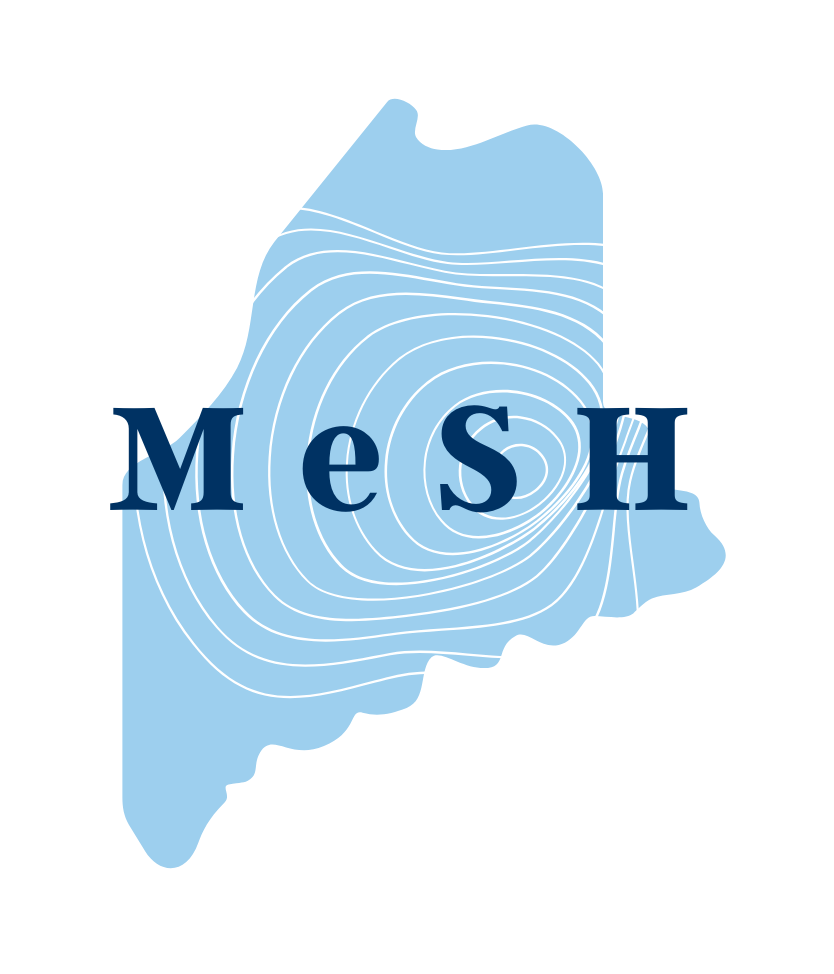Sustainability Product Labels
There are hundreds of sustainability labels for food, clothing, building materials, cosmetics, and thousands of other products. These labels can mean different things such as that the product was produced with sustainably sourced materials, consideration to environmental and animal welfare, ethical treatment of laborers throughout the supply chain, and much more. These labels are usually created and managed by nonprofits, governments, or less often, companies. Certain labels can apply to specific types of product (such as produce which is organic) or a much broader category (such as packaging created from recycled material). Specific labels may apply only to goods created in a single country, any goods created with certain sustainable practices, or goods produced sustainably within certain industries or a single company. The Ecolabel Index is an online catalog of hundreds of ecolabels which are used in the U.S. and internationally. It has information about what each label means, who manages it, and how to find more information. If you want to shop sustainably, checking for labels is an easy way to start.
There are hundreds of different labels out there, so figuring out what means what can be overwhelming, but there are many resources to help you effectively navigate the marketplace with a sustainable mindset. This page lists many of the most common sustainability product labels in the U.S. along with a short description of what they actually mean and a link to more information. Many of the websites for the organizations which manage these labels have lists of their certified products, as well as where and how to purchase them. Many of these certifications require that companies, producers, and traders regularly recertify, comply with independent audits, or regular checks to confirm compliance with that certification’s standards.
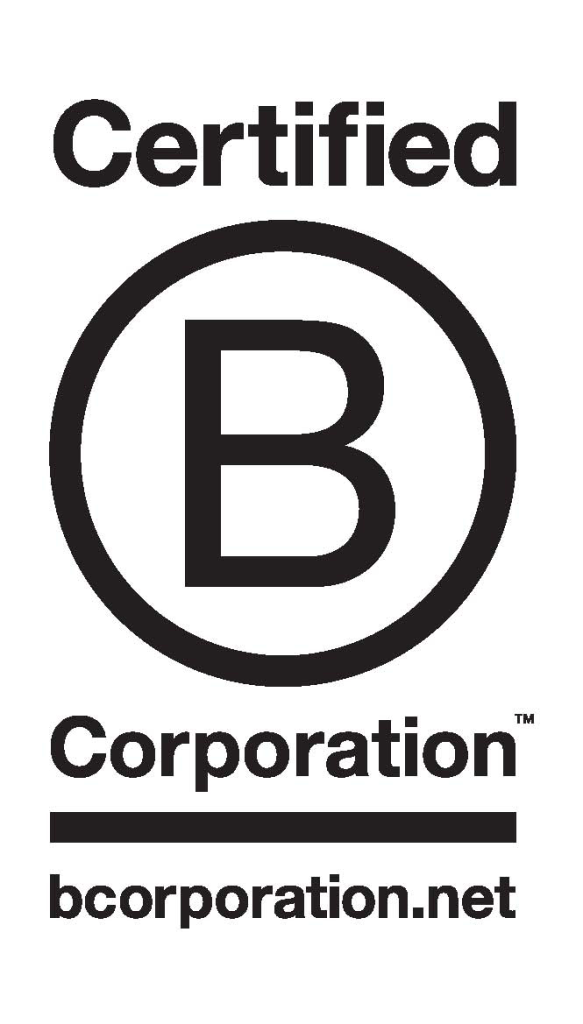
B Corporation
This label is managed and certified by B Lab, a nonprofit working to shift economic practices to benefit people, communities, and the planet. This label is a certification for companies and businesses which have achieved high social and environmental performance, make legal commitments to change their governance structures to benefit all stakeholders, not just shareholders, and maintain transparency about their performance and practices. Rather than focusing on a single social or environmental issue, the B Corp Certification takes a wider view of a company’s business practices.
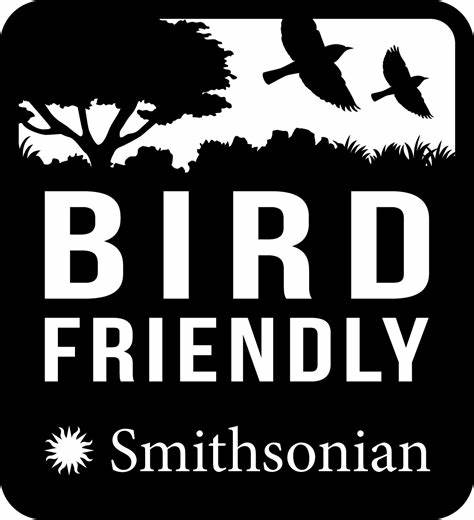
Bird Friendly
The Bird Friendly label is managed and certified by the Smithsonian National Zoo and Conservation Biology Institute. This label is primarily used for coffee and cocoa products, but anything that carries it was produced by farms which are 100% organic and employ practices which protect habitats, ecosystems, and bird species.
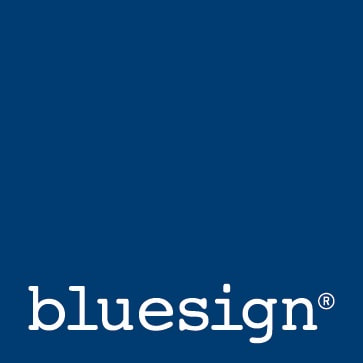
Bluesign
The bluesign label is managed and certified by Bluesign Technologies, a Swiss company working to improve sustainability in the textile industry. This label has a few variations, but all are made up of a blue square or label with “bluesign”, but some may also say “product”, “approved fabric”, “approved”, or “system partner” in addition below. Products with this label were produced sustainably without environmentally harmful chemicals throughout the supply chain and production process.
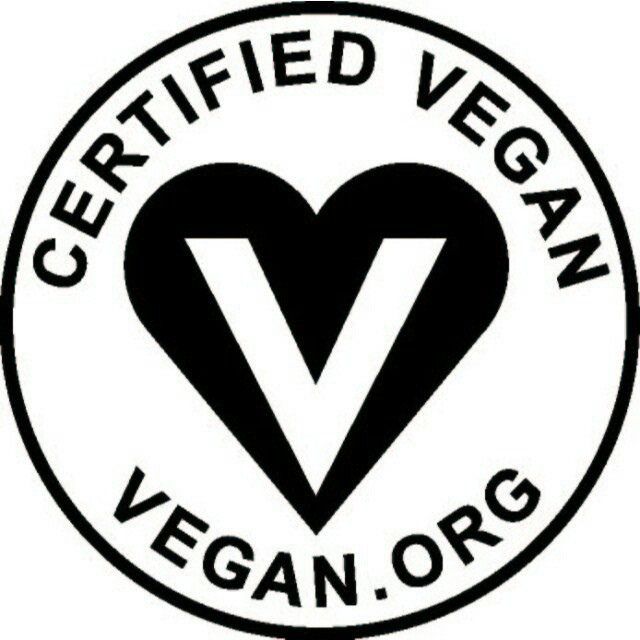
Certified Vegan
The Certified Vegan label is managed and certified by Vegan Action, a nonprofit which works to improve human health, eliminate animal suffering, and reduce environmental harm through the promotion of veganism. While people choose to be vegan for many reasons, plant based diets have a lesser environmental impact than traditional diets. Products with this label do not contain animal products or byproducts and have never been tested on animals.
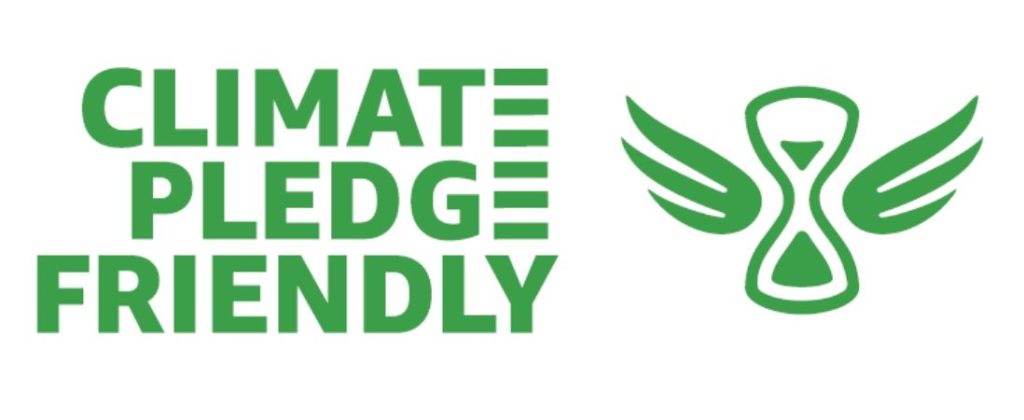
Climate Pledge Friendly
The Climate Pledge Friendly label is used by Amazon to help environmentally conscious consumers find products which are sustainable. Amazon is working with qualified organizations which certify other ecolabels, as well as third parties which include governmental agencies, nonprofits, and independent laboratories that will help verify the sustainability of eligible products. This symbol does not appear on the products or packaging themselves, but under their listing on the Amazon app and website. Amazon currently sells more than 200,000 Climate Pledge Friendly products of all types in both the U.S. and Europe.
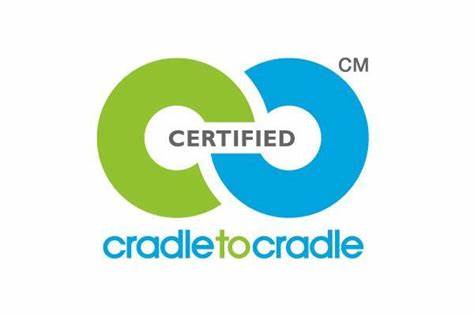
Cradle to Cradle Certified (CM) Products Program
The Cradle to Cradle Certification label is managed by the Cradle to Cradle Products Innovation Institute, a nonprofit which works to promote a prosperous international circular economy to maximize the health and well being of both people and the planet. This label has four levels, bronze, silver, gold, and platinum which represent progressive improvements in the health and safety of materials used to produce the product.
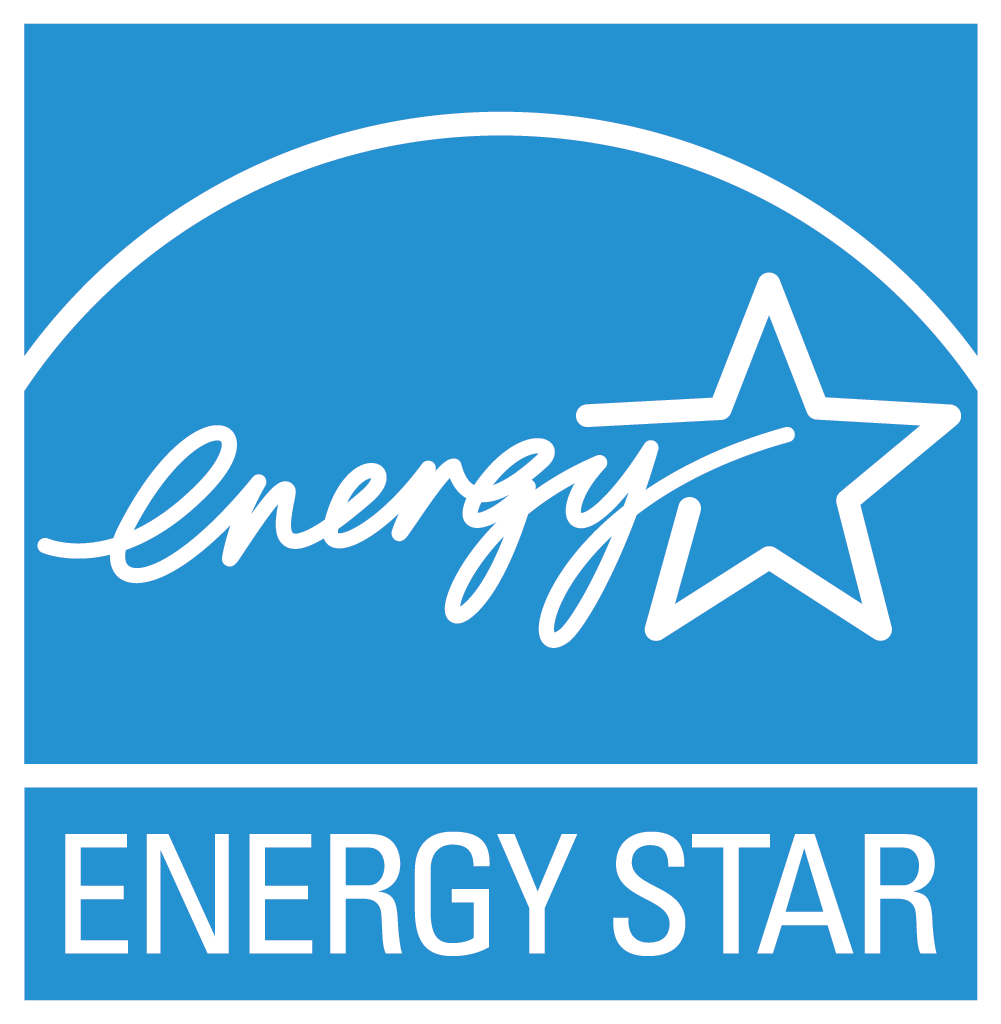
ENERGY STAR
The ENERGY STAR label is managed and certified by the United States Environmental Protection Agency and indicates that a product is energy efficient, thus reducing both the financial and environmental impacts of appliances and structures which use electricity. There are also ENERGY STAR certification programs in Canada and New Zealand which are managed by their respective government counterparts, though the same label is used internationally.
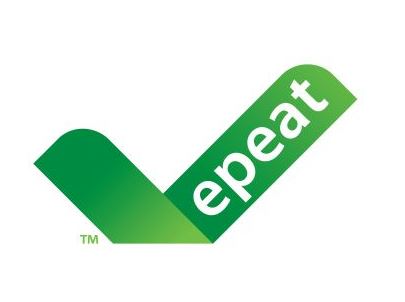
EPEAT
EPEAT (Electronic Product Environmental Assessment Tool) is a global rating system for electronics which allows purchasers to evaluate and compare products based on their environmental attributes. This label is managed and certified by the Green Electronics Council, a nonprofit working to promote the purchase and adoption of sustainable technology options. This certification applies to equipment such as monitors, printers, televisions, computers, and other devices. Products with this label are produced with environmentally responsible materials throughout the supply chain with consideration of waste and climate impacts generated before, during, and after the product’s lifespan.
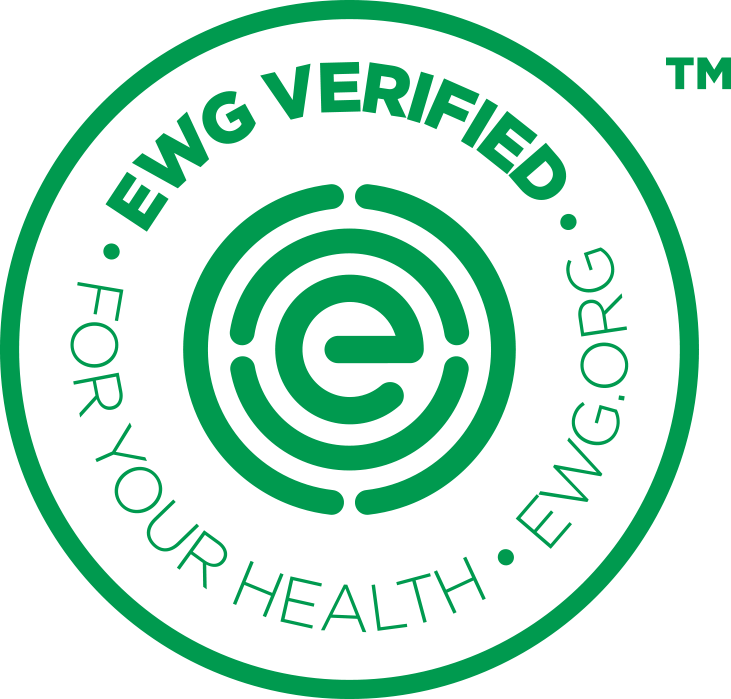
EWG Verified
The EWG Verified label is managed and certified by the Environmental Working Group, a nonprofit organization working to promote research and education to help consumers make healthy, informed choices about the products they purchase and use. Products in the U.S. can legally contain many chemicals and compounds which have been deemed harmful to human health and banned in many other countries. Products which carry the EWG Verified label (cosmetics, household goods, cleaning products, and more) do not contain EWG ingredients of concern which may be legal in the U.S., but not healthy, are transparent in their activities, and employ good manufacturing practices.
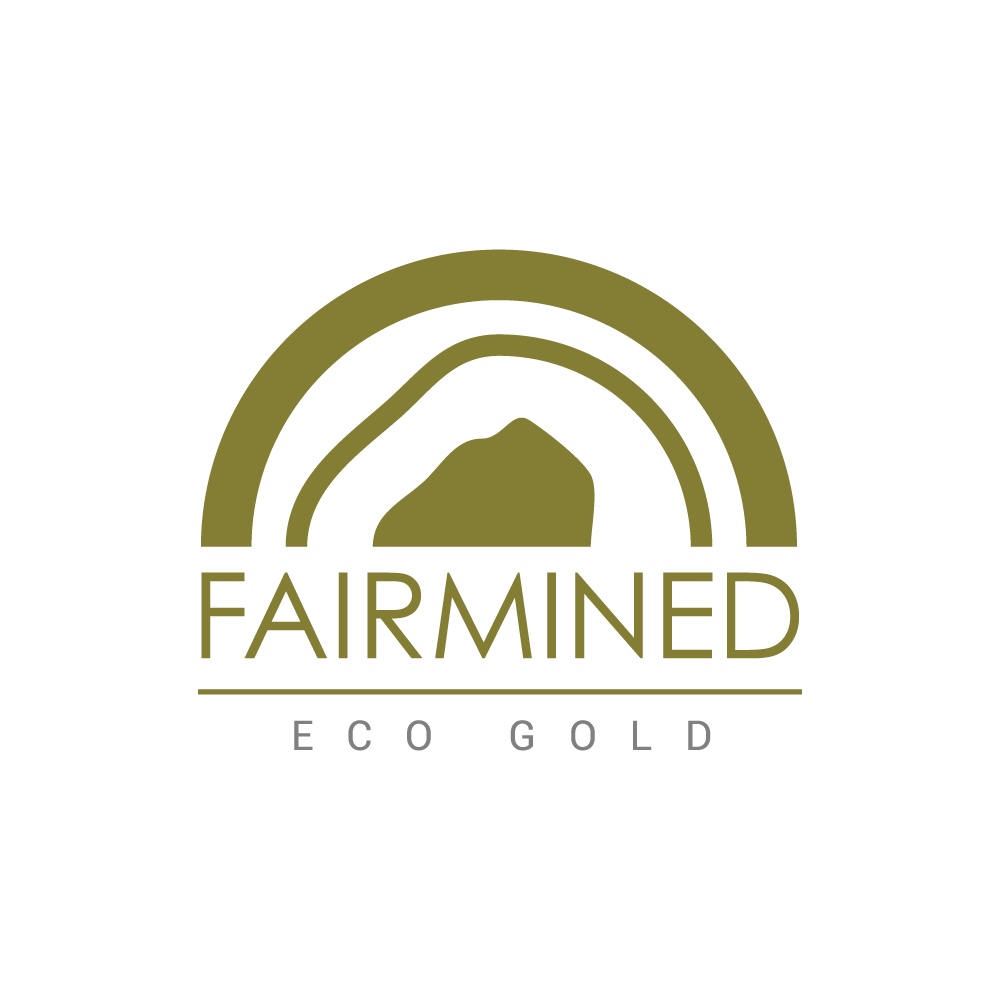
Fairmined
The Fairmined label is managed and certified by the Alliance for Responsible Mining, an international nonprofit working to develop and support artisanal and small-scale mining communities. Gold certified by this label has been mined by small groups or organizations in a manner which minimizes environmental harm, prioritizes miner welfare, improves the development and well being of local communities, and utilizes sustainable practices.
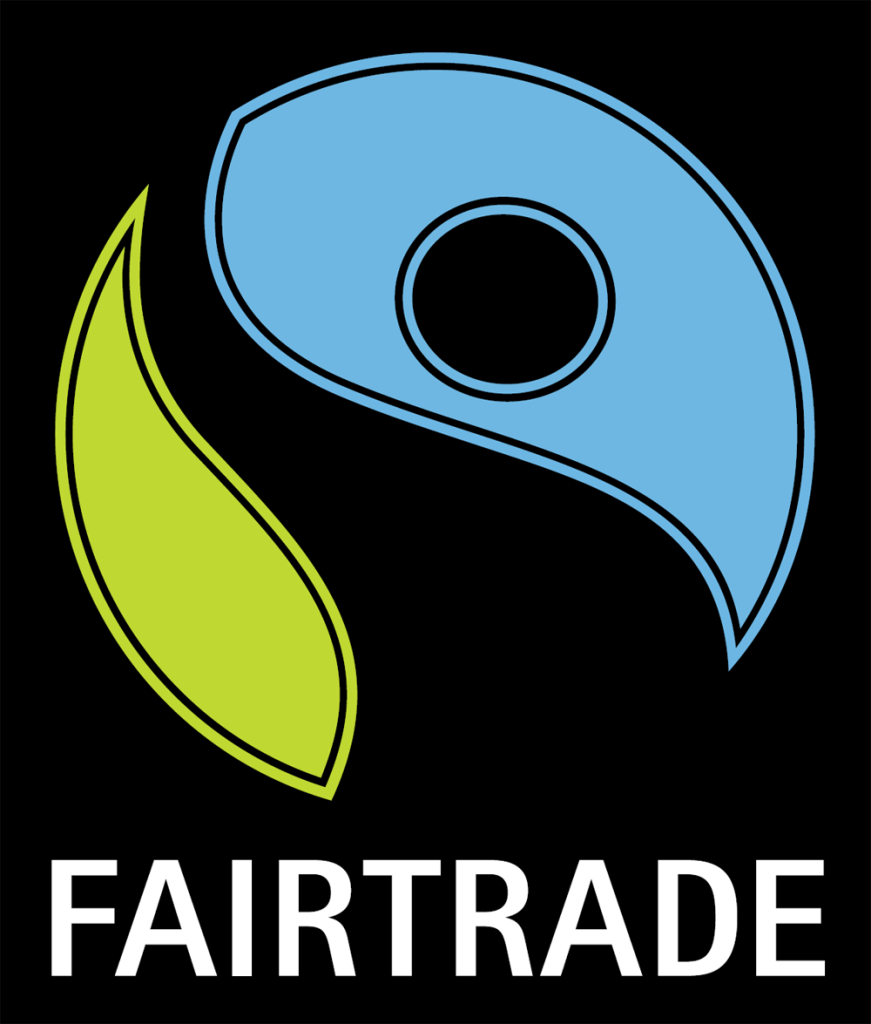
Fairtrade
The Fairtrade label is managed and certified by Fairtrade Labeling Organizations International, a nonprofit working to help consumers buy goods which are produced in an economically, socially, and environmentally sustainable way. Products which carry this labels were produced and traded by groups which fairly price goods and compensate farmers and producers, engage in democratic organization and decision making practices which include transparency and nondiscrimination, and are environmentally responsible in their water, waste, and soil management, mindful of biodiversity preservation, as conservative as possible in the application of agrochemicals, refrain from using certain hazardous materials, and do not grow or incorporate GMOs. Produce is not required to be organic, but growers are encouraged to convert to organic practices. The blue and green Fairtrade label is universal on all certified products, but there are different variations. Depending on the packaging, the design surrounding the blue and green may be black or white. This label means that the product is 100% traceable through Fairtrade. If the label has an arrow next to it, it means that the product contains a minimum of 20% of ingredients certified as Fairtrade and that there is more information about the ingredients on the back. If there is the name of a component or ingredient incorporated into the label, it means that this component specifically is Fairtrade certified within the product.
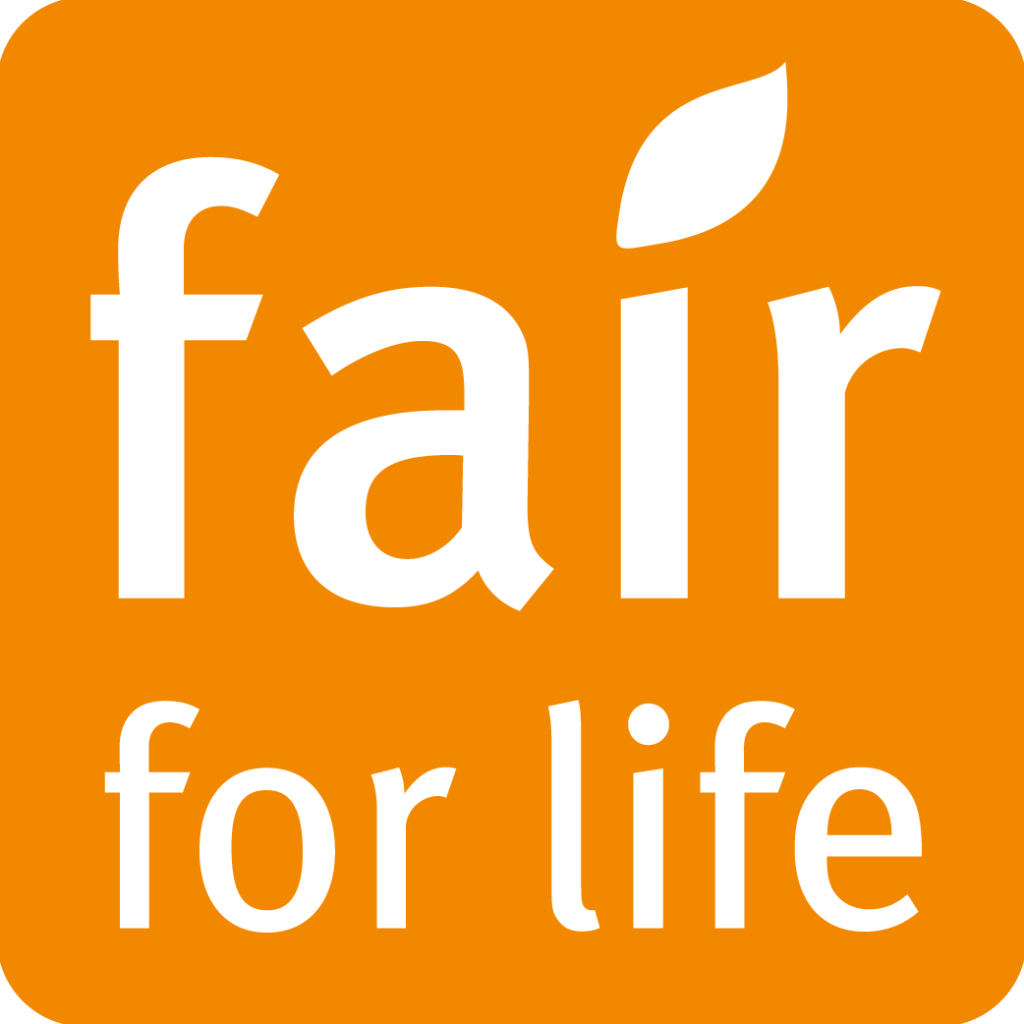
Fair for Life
Products which carry the Fair for Life label are produced with exemplary supply chains which exhibit responsibility in their economic, social, and environmental practices. By encouraging companies to employ practices which are beneficial to all people, workers, and places involved in the creation of a product, long term, stable, and productive business, community, and economic connections can be maintained sustainably. Certified companies demonstrate respect for human rights, fair working conditions, ecosystems, biodiversity, and local impacts of agricultural and production activities. Fair for Life has certified more than 700 companies in 70 countries.
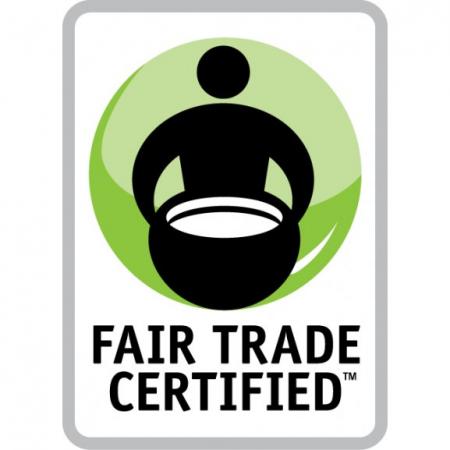
Fair Trade Certified
The Fair Trade Certified label is managed by Fair Trade USA, a nonprofit working to build innovative models of responsible business, conscious consumerism, and shared values to eliminate poverty and enable sustainable development for workers, families, and communities across the world. Products which carry the Fair Trade Certified label are confirmed to have originated from farms and companies which employ socially and environmentally responsible practices which support workers and communities. This label certifies, produce, dairy, seafood, flowers, packaged foods, and home goods.
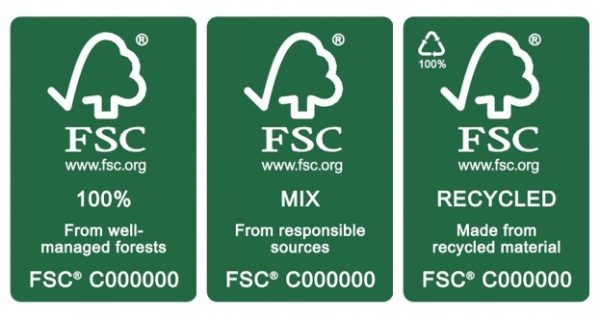
Forest Stewardship Council (FSC) Certified
Products which carry an FSC label were produced with supplies from responsibly managed forests (reducing deforestation and preserving biodiversity), equitable, safe, and fairly compensated labor, and operations which are respectful of the legal and cultural rights of local communities in regard to forestland. The FSC certifies both forests that are managed in adherence to sustainable environmental and social standards and products created from certified forests. All FSC labels contain the same symbol, as well as “FSC” and their website information, but there are a few different types of certifications which vary slightly on the label. Labels may state “100% from well managed forests” (meaning that the product was produced only with material from FSC certified forests), “made from recycled materials” (meaning that the product is 100% composed of recycled material), or “MIX supporting responsible forestry” (meaning that the product is composed of a mix of material from FSC certified forests, recycled material, and FSC controlled forests (controlled forests are not certified and may not meet the same high standards, but they do not employ unacceptable practices).
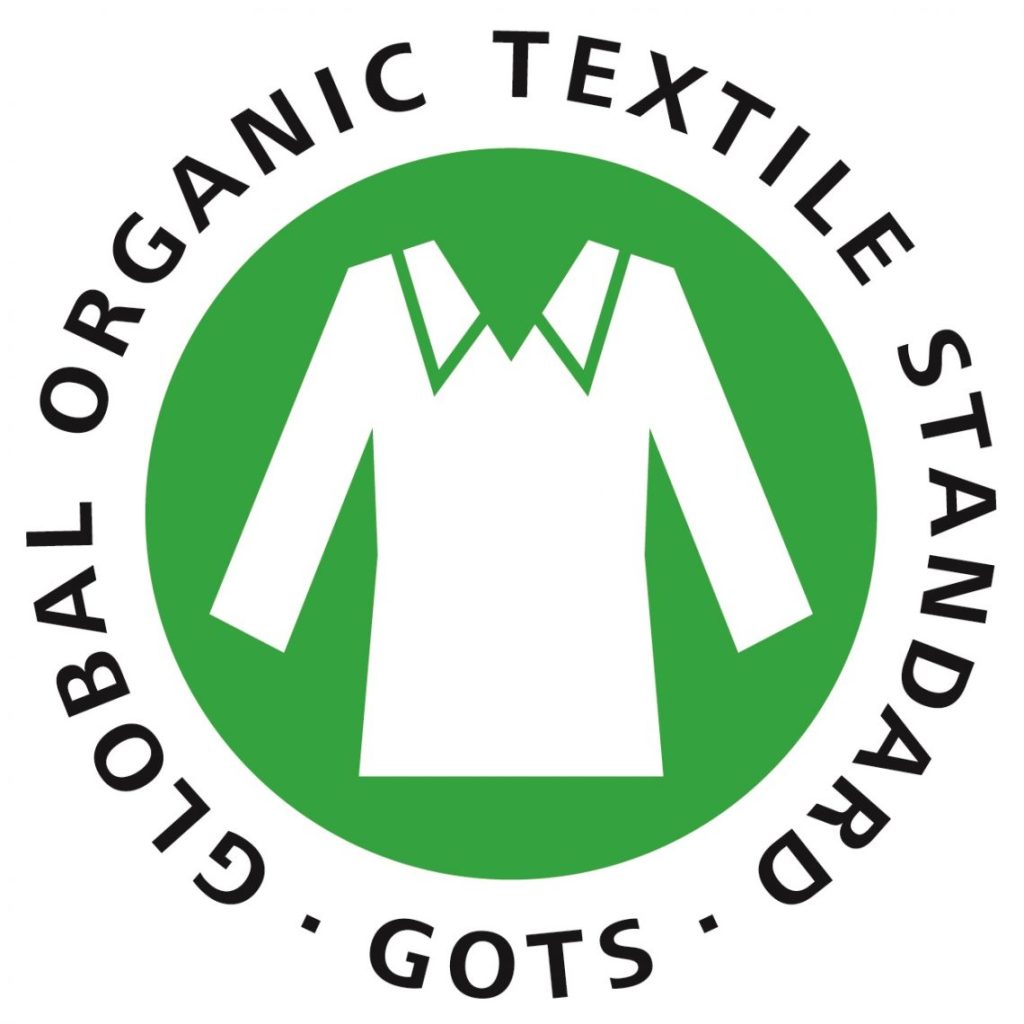
Global Organic Textile Standard (GOTS)
The Global Organic Textile Standard was developed to unify existing eco textile standards and promote the environmentally and socially responsible harvesting, production, and development of textile goods. This certification covers the entire supply chain from the field to the final consumer product. Products which carry this label must use certified organic fibers and meet demanding social and environmental responsibility standards throughout the production process, as well as allow independent inspections.
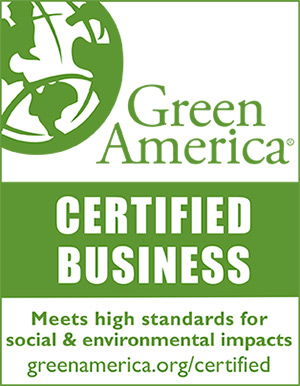
Green America’s Green Business Certification
The Green Business Certification is managed by Green America, a nonprofit working to promote clean energy, fair labor practices, healthy food, responsible financial practices, and justice for all. The Green Business Certification is granted to businesses which are environmentally responsible in their product sourcing, manufacturing, and facility operations, socially equitable in their commitment to practices which benefit the well-being of workers, customers, suppliers, and communities, and personally accountable by tracking and improving their progress and operating with transparency. The National Green Pages can be searched by keyword or business name to find sustainably and ethically sourced products and services.
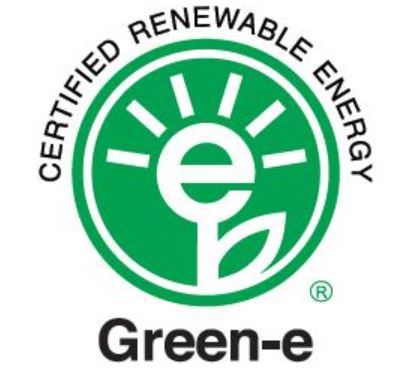
Green-e
The Green-e labels are managed and certified by the Center for Resource Solutions, a nonprofit working to create policy and market solutions to advance sustainable energy. There are several green-e labels which certify different things for various products, resources, and services. The Green-e Climate label certifies that specific carbon offsets meet rigorous environmental and ethical standards. The Green-e Energy label verifies the entire chain of custody and certifies that clean energy is generated in new/up to date facilities, marketed accurately with transparency, and reliably delivered to the purchaser. The Green-e Marketplace label indicates that a business uses renewable energy in their operations and has made climate commitments. The Green-e Renewable Fuels label certifies that a product was created with energy generated by biomethane products. All Green-e labels have the same green-e symbol, as well as additional writing which clarifies which type of Green-e label it is.
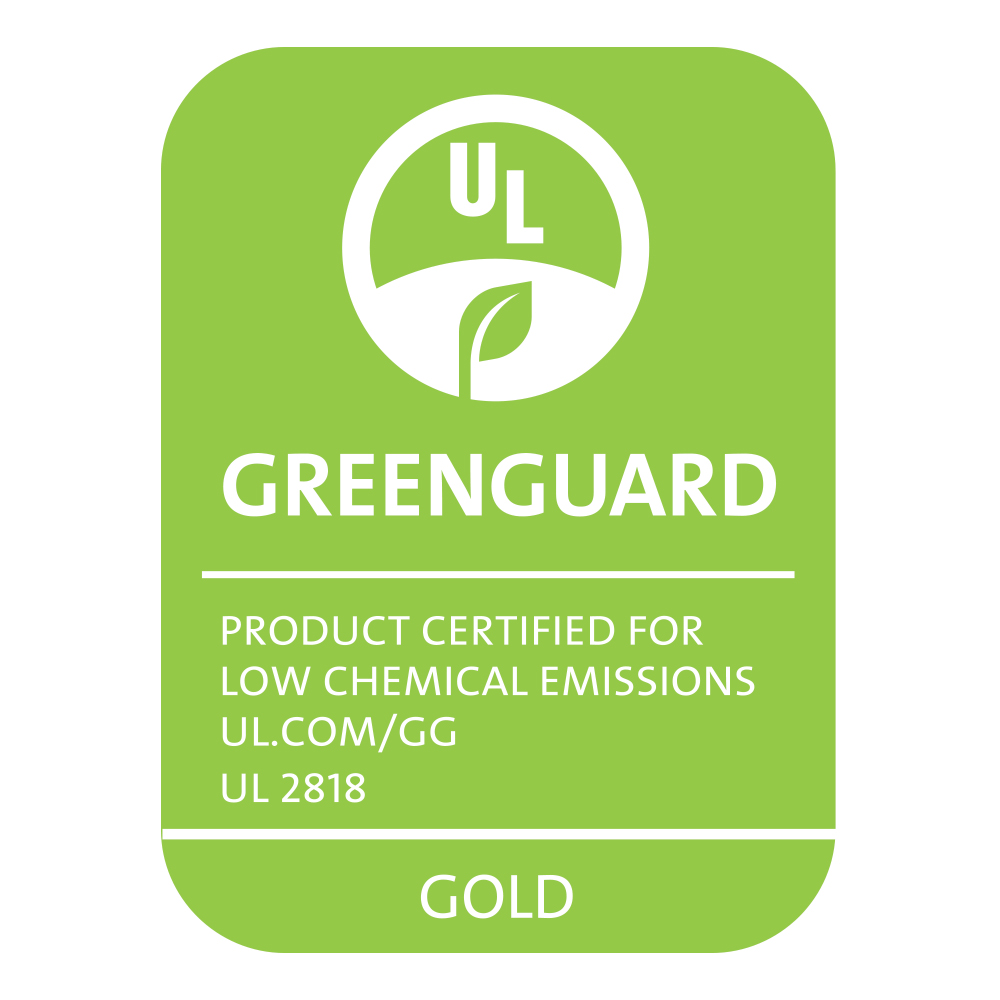
GREENGUARD
The GREENGUARD label is managed and certified by UL Environment, an organization working to help companies improve safety, sustainability, security, quality, and risk management to achieve regulatory compliance. Products which carry the GREENGUARD label are certified to have low chemical emissions, comply with key chemical emission standards, and support a commitment to healthier indoor environments. This label certifies many products such as flooring, furniture, building materials, electronic equipment, and cleaning supplies.
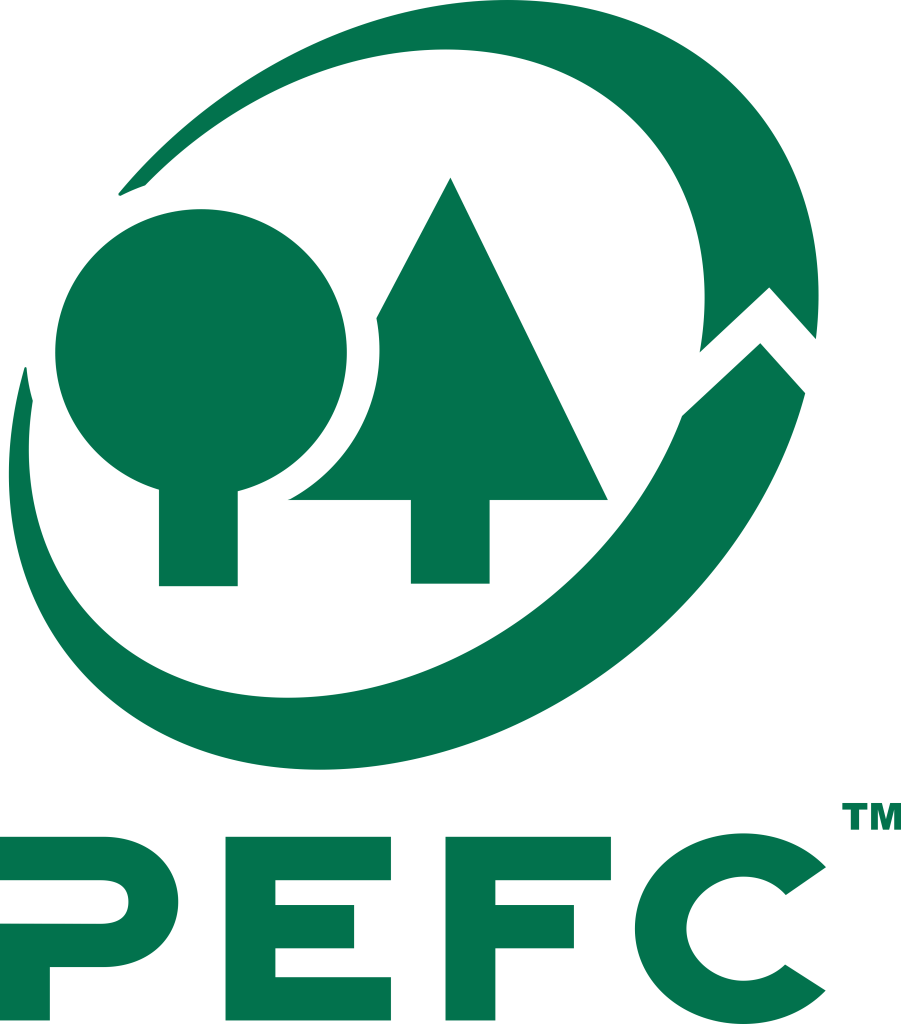
PEFC (Programme for the Endorsement of Forest Certification)
The PEFC label is managed and certified by the Programme for the Endorsement of Forest Certification, a non-profit, non-governmental global alliance of national forest certification systems based in Switzerland working to promote sustainable forest management through independent third-party certification. By endorsing national and regional forest certification systems, the PEFC is able to take local conditions and needs into account. The certification allows forest owners to demonstrate their sustainable practices and empowers consumers to purchase sustainably. Information about standards and compliance, how to get a PEFC certification, and how to find PEFC certified products can be found on their website. Products with the PEFC label originate from certified forests which are managed with environmentally, socially, and economically sustainable practices.
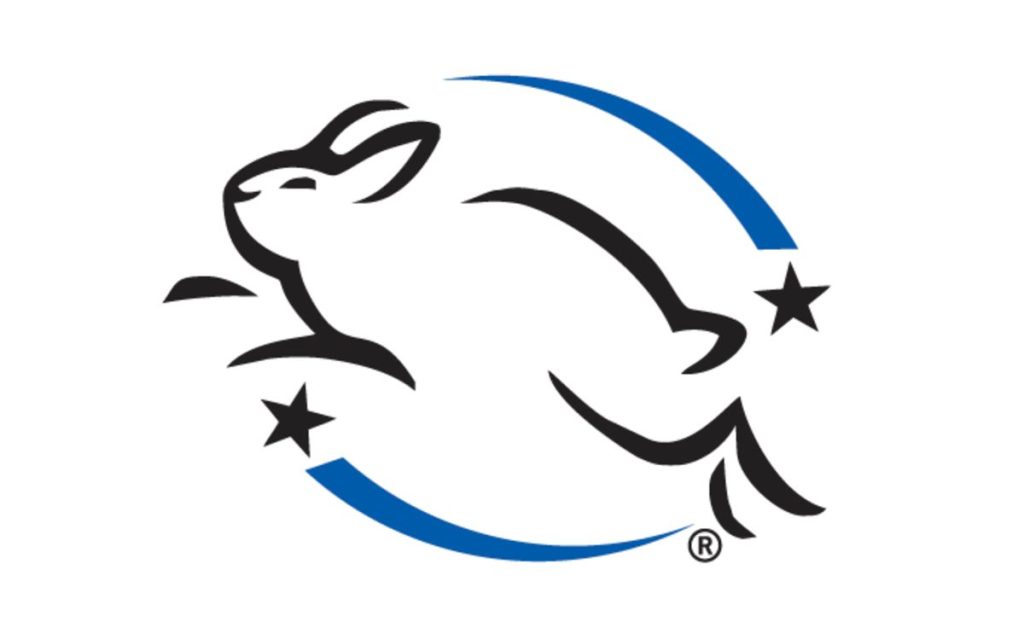
Leaping Bunny
The Leaping Bunny is an internationally recognized label managed and certified by the Coalition for Consumer Information on Cosmetics (CCIS). This certification is given to companies which do not perform any animal testing and also only purchase ingredients from suppliers who make the same pledge, therefore guaranteeing that the entire supply chain for certified products is 100% free of animal cruelty. This label is generally used for cosmetic, personal care, household, and animal care products. Companies must also agree to annual recommitments and independent audits.
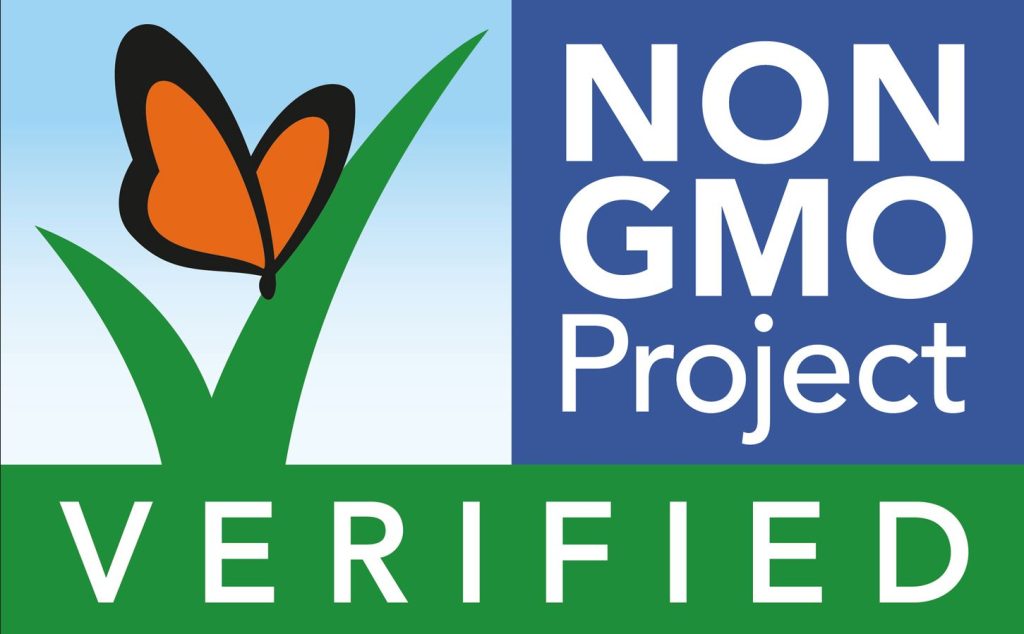
Non-GMO
The Non-GMO label is managed and certified by the Non-GMO Project, a nonprofit working to protect the consumer’s right to know what is in their food, educate the public about GMOs, and preserve and build a non-GMO food supply across North America. As defined by the USDA, genetically modified organisms, commonly called GMOs are “produced through genetic modification” which may involve splicing genes from one species into another. There are both health and environmental concerns over the impact of GMOs. A verified non-GMO system supports organic and regenerative agriculture while preserving genetic diversity in food. Products which carry this label meet rigorous standards for avoidance of GMOs including testing for risk ingredients, independent verification of non-GMO status, and annual renewal of certification.
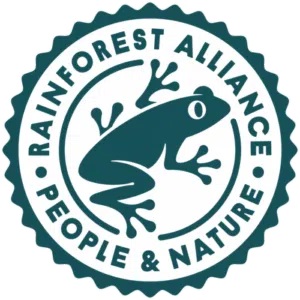
Rainforest Alliance
The Rainforest Alliance label is managed and certified by the Rainforest Alliance, a nonprofit working to protect tropical forests through improving business and agricultural practices to benefit workers, communities, and the environment. Products which carry the Rainforest Alliance label are certified to have been produced in a manner which minimizes environmental impacts,conserves biodiversity, promotes equitable labor, and supports communities. While most certified products are food and beverages, the Rainforest Alliance also certifies health and beauty products, plants, home goods, and clothing. A comprehensive and searchable list of certified products can be accessed on their website.
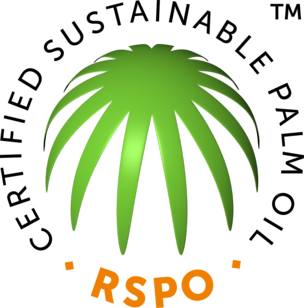
Roundtable on Sustainable Palm Oil (RSPO)
The RSPO label is managed and certified by the Roundtable on Sustainable Palm Oil, a nonprofit working with stakeholders across the palm oil supply chain to transform the industry. Palm oil is very versatile and used in many foods, personal products, and other goods. The harvesting and production of palm oil has been associated with many negative environmental impacts such as deforestation, erosion, and biodiversity loss, so there has been a significant push to improve practices within the industry. Products which carry the RSPO label are certified to be made with palm oil that was sustainably produced throughout a traceable supply chain. Organizations must meet RSPO sustainability standards, comply with annual audits, and demonstrate continuous improvement in their practices.
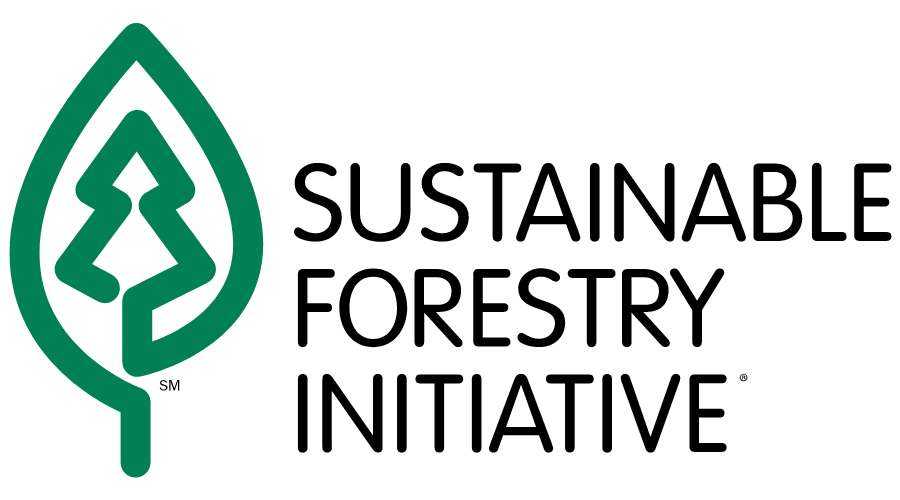
Sustainable Forestry Initiative
The Sustainable forestry Initiative (SFI) label is managed by a nonprofit of the same name which works to advance sustainability and address local and global sustainability issues through forest focused collaboration and networking. The SFI also participates in, and supports various conservation projects, grants, and research. It engages with many different groups and communities to address local needs, educate the public, and support young professionals. Consumer products which carry SFI labels are created with sustainably sourced and/or recycled materials.
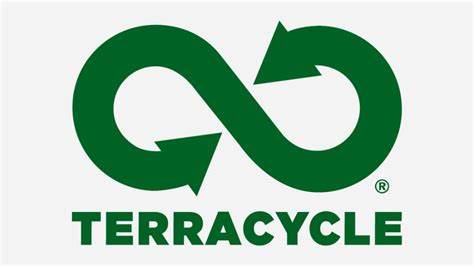
TerraCycle
TerraCycle is a company that runs various waste collection programs in several countries which collects non-recyclable post-consumer waste such as pens, juice pouches, and many other items, and makes new products and materials out of it. Products and packaging with the TerraCycle logo can be collected and sent (postage paid) to TerraCycle. There are more than 60,000 collection sites and more than 12 million people participating throughout the world. More information about eligible products and how to turn them in can be found on the TerraCycle website. Consumers can sign up to collect certain types of waste and earn incentives which are paid to a charity of their choice for each unit of waste received by TerraCycle. The TerraCycle label is also on products manufactured with collected waste. TerraCycle products can be turned in through collection programs and recycled again.
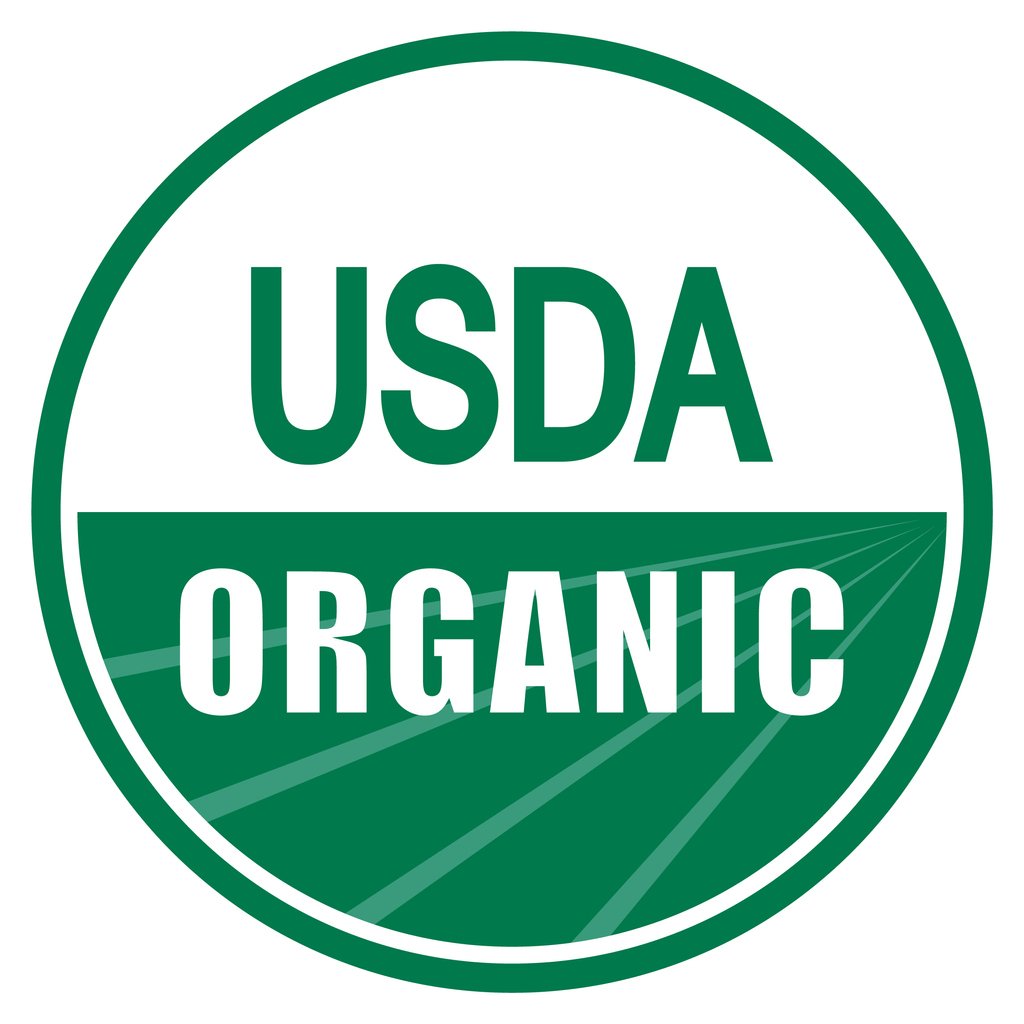
USDA Organic
The USDA Organic label is managed and certified by the National Organic Standards Board of the United States Department of Agriculture. Products which carry this label, whether produced in the U.S. or imported are certified organic. Meat, poultry, eggs, and dairy products are considered organic when derived from animals which have not been given antibiotics or growth hormones. Organic food is produced without conventional pesticides, fertilizers containing synthetic ingredients or sewage, ionizing radiation, or bioengineering.

